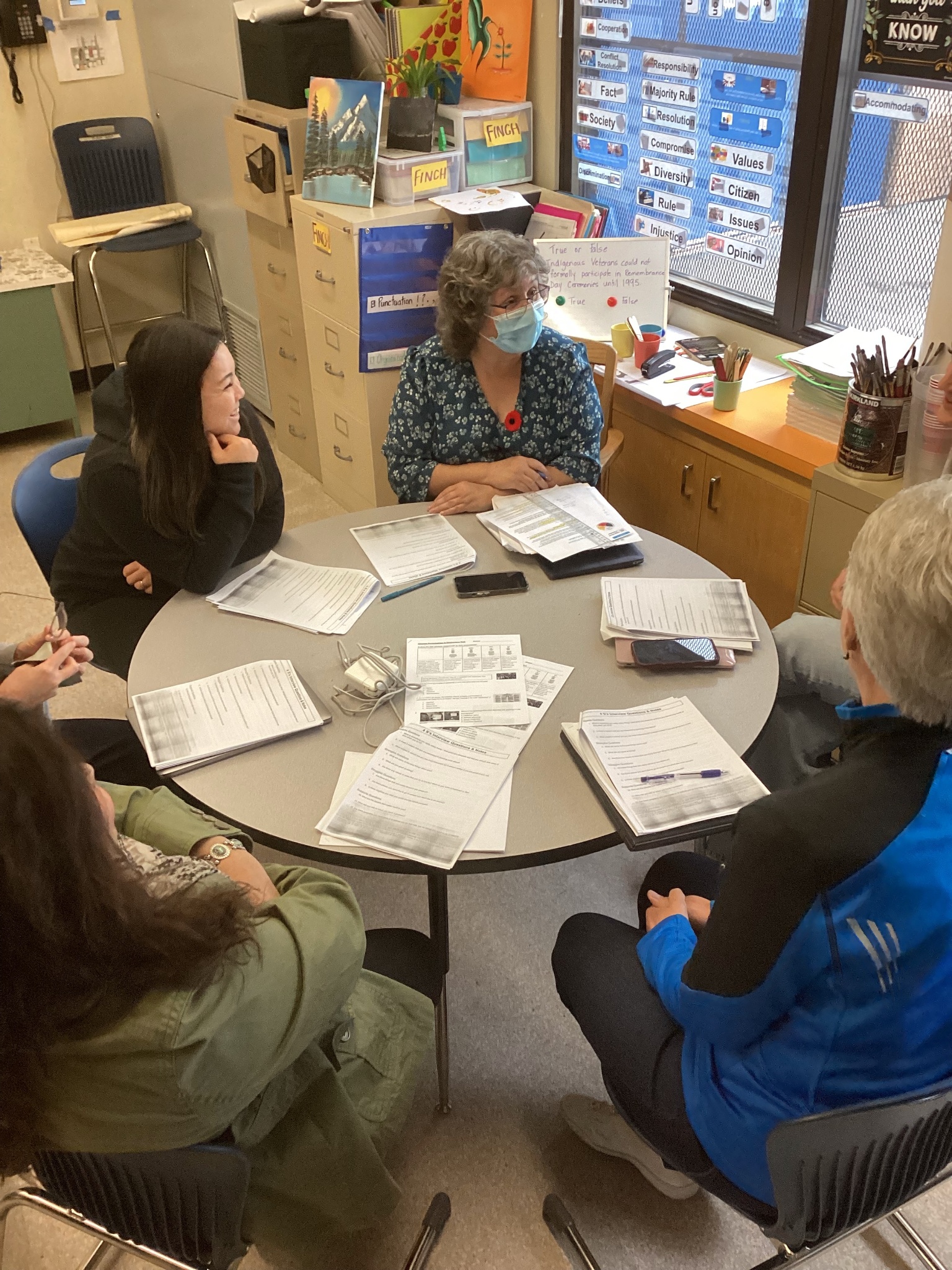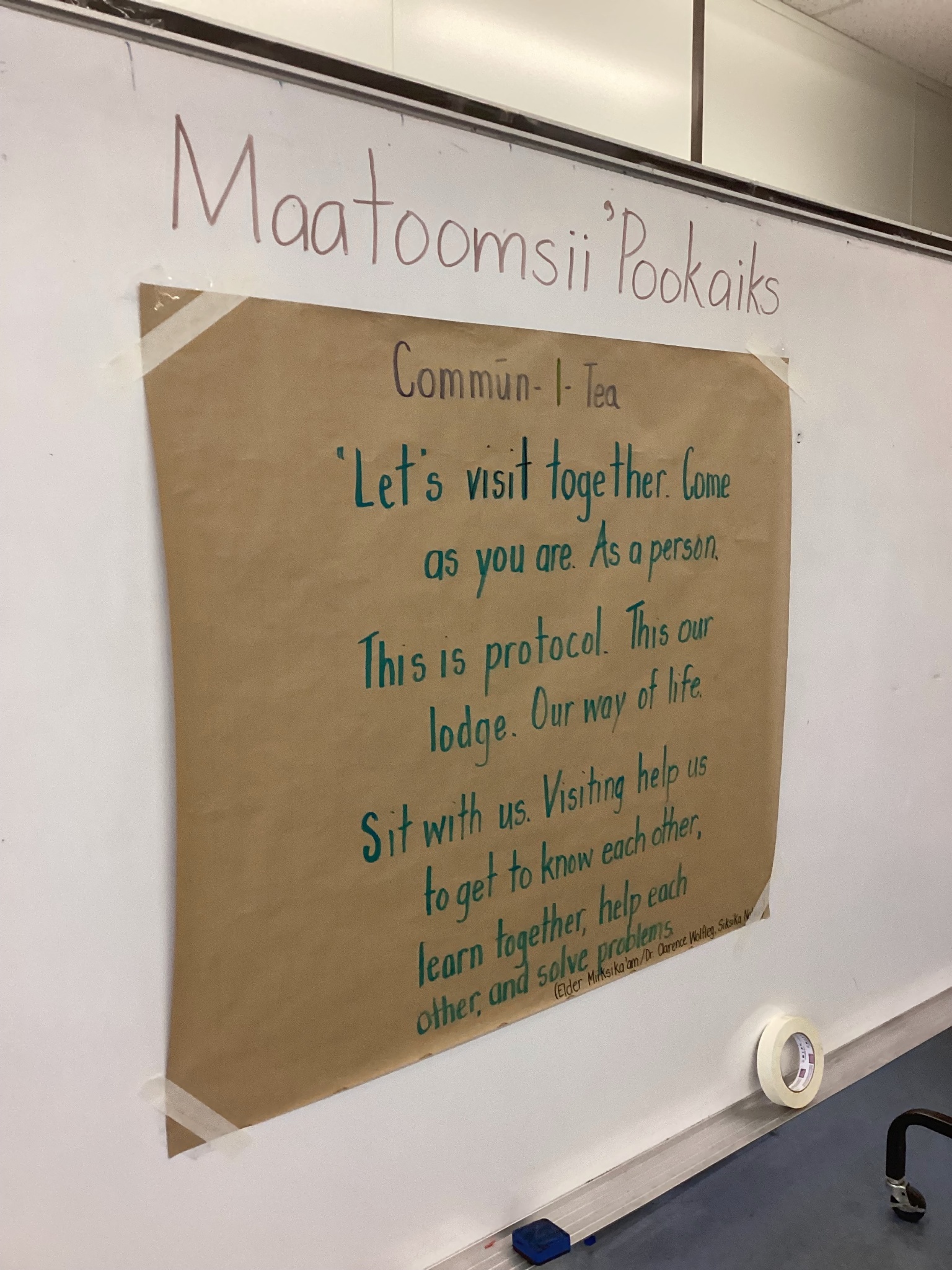Oki, Dādánast’áda, Âba wathtec, Tânisi, Taanishi, Bonjour, Hello
Did you know that on November 8, the CBE holds an annual day of professional learning related to Indigenous Ways of Knowing?
This day of professional learning began in October 2021 and is designed for all staff to develop and apply foundational knowledge of Indigenous Education in the CBE, regardless of role. We are committed to acknowledging and responding to the Truth and Reconciliation Commission's 94 Calls to Action, which includes providing education on the history and legacy of residential schools, the United Nations Declaration on the Rights of Indigenous Peoples, Treaties and Indigenous rights, Indigenous law, and Indigenous-Crown relations (TRC Call to Action #57).
On Sept. 1, 2022, Piikani Elder Leonard Bastien gifted our day of learning with the Blackfoot name Maatoomsii'Pookaiks (MAAH-DOOM-SEE-BOO-GAAKS), which translates to putting children first. This name upholds and sustains the CBE mission: Students come first, and we are grateful to Elder Leonard for this beautiful gift.
At Cecil Swanson, our teacher-led Truth and Reconciliation committee led the day. Staff learned about:
Commun-I-tea Protocols
We learned that a Commun-I-tea gathering provides the venue, time, and setting to build meaningful relationships that nurture connection. Creating a cohesive collective between school, home, and the community enriches Indigenous learners' school experiences, and can elevate staff development. While the protocol has been designed to engage with Indigenous students, families, and communities, in addition to this, schools can use the protocol to gather voice from all community group members.
Decolonizing Assessment
We learned that the purpose of decolonizing assessment practices is to invite the students into the role of collaborator in assessment and learning. We considered how co-creating assessment can take away the colonial hierarchy of power that the current system is built upon. Self-assessment and goal setting are key parts of this process as well. Decolonizing assessment considers "who is the student, and how do they learn", and makes students increasingly accountable for their learning.
This learning is part of our ongoing commitment to Truth and Reconciliation at Cecil Swanson School.


